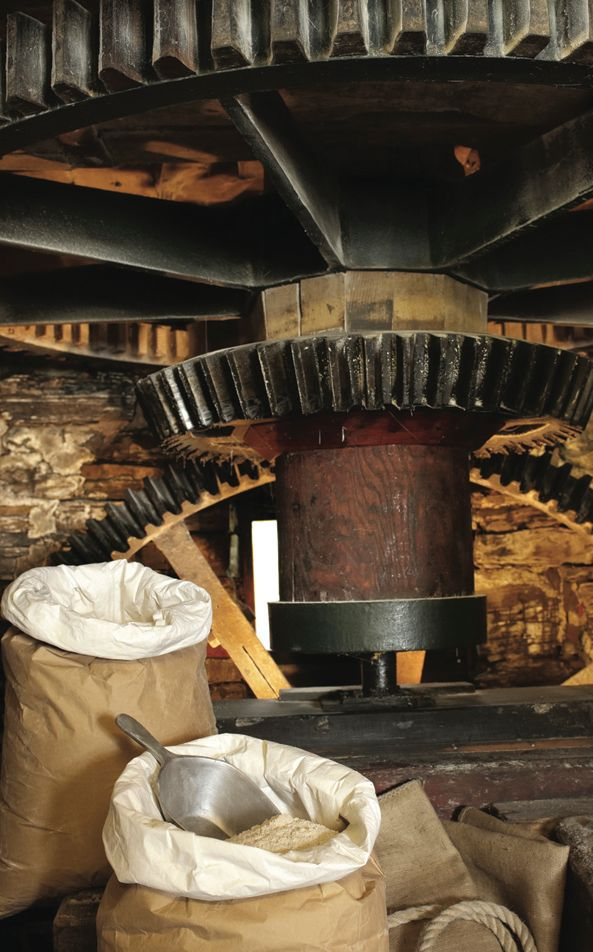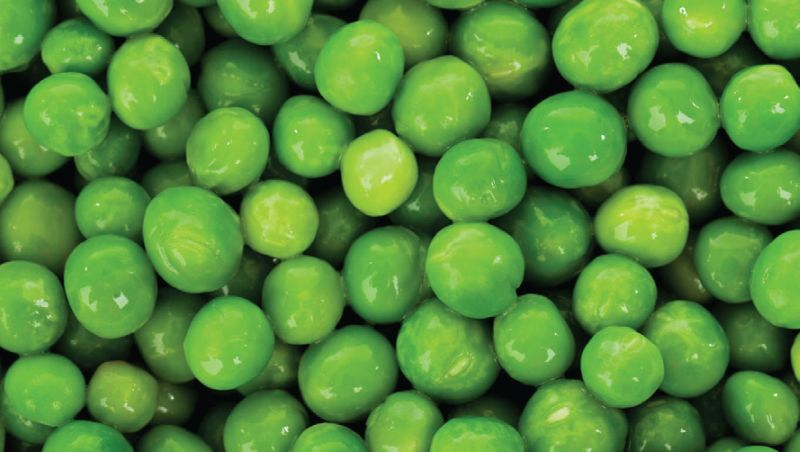 From accurate weighing to contamination detection, it’s imperative that the ingredients used in food production are handled and processed carefully. Our feature looks at some examples of the equipment and technology that enables manufacturers to do just this
From accurate weighing to contamination detection, it’s imperative that the ingredients used in food production are handled and processed carefully. Our feature looks at some examples of the equipment and technology that enables manufacturers to do just this
Barfoots of Botley is one of Europe’s largest processors and packers of fresh semi-exotic produce such as asparagus, broad beans, courgettes, sweetcorn, squashes and sweet potatoes. Given the diversity of produce and the varying sizes of individual pack constituents, a proportion of Barfoots’ products are packed by hand. Therefore, maintaining accurate pack weights for predefined pack sizes is challenging, especially with frequent line changes to meet changing customer demand.
Without adequate control, higher than expected giveaway means lost profits and impacts on freight costs. In parallel, excess waste from trimmings and unacceptable produce bring their own cost implications.
Marco first supplied an eight station Yield Control Module with dual purpose LineMaster workstations to Barfoots Sefter Farm site back in 2009. The following year, Barfoots purchased a single station Waste Control Module for the same site. Following on from the success of the first install, Barfoots has now purchased an additional 24 station Yield Control Module and a further two Waste Control Modules.
 Barfoots’ operations manager Tom Spragg said: “Our range of fresh produce is not the easiest to pack and maintaining target weights within legislative requirements can be difficult. The Marco Yield Control System has reduced our giveaway dramatically, whilst our productivity has improved. Our operators find the systems easy to use and minimum training is required. With regard to the monitoring of waste, we now know when and where waste is produced and by whom. This allows us to fine tune our operation and optimise costs.”
Barfoots’ operations manager Tom Spragg said: “Our range of fresh produce is not the easiest to pack and maintaining target weights within legislative requirements can be difficult. The Marco Yield Control System has reduced our giveaway dramatically, whilst our productivity has improved. Our operators find the systems easy to use and minimum training is required. With regard to the monitoring of waste, we now know when and where waste is produced and by whom. This allows us to fine tune our operation and optimise costs.”
In another area of food processing, this time at a flour mill in Mid Wales, Lock Inspection Systems has installed a three-tier quality control system which uses magnets, receivers and automated metal detection equipment. The installation at Bacheldre Mill shows how artisanal producers, and large industrial food manufacturers, can benefit from advanced in-line quality control.
 Once a working museum, Bacheldre Mill now produces stone-ground bread, home baking and speciality flours including spelt, rye, wholemeal and oak smoked varieties for customers such as Waitrose, food halls and Michelin star restaurants. Demand means that the stones are now turned by motor as opposed to water, but aside from this, the production methods are very much in keeping with tradition.
Once a working museum, Bacheldre Mill now produces stone-ground bread, home baking and speciality flours including spelt, rye, wholemeal and oak smoked varieties for customers such as Waitrose, food halls and Michelin star restaurants. Demand means that the stones are now turned by motor as opposed to water, but aside from this, the production methods are very much in keeping with tradition.
“We might operate from a centuries-old mill but we have adopted the latest food production standards including a full HACCP system,” said Matt Scott, one of the mill’s owners. “We’ve never had any issues with metallic contamination, but with the quality of our product of paramount importance, we cannot afford to be complacent. As in any food production environment there is always a chance that a problem within the upstream manufacturing process, for example, a bolt coming off an auger, could result in metal entering the product flow. Deploying metal detection gives us the reassurance that even if this does happen, each bag of flour that leaves the mill will still be contaminant-free.
“Lock’s systems are performing exactly as we hoped they would. They are proving reliable, giving us complete peace of mind.”
Bacheldre Mill has two Lock units in operation. One, a compact throat metal detector which inspects flour as it flows into bulk 16 and 25kg bags, is located within the mill itself. The other conveyorised system is located in the packing hall, where it performs a final check on the bags of flour before they are packed into transit cases. Approximately 4000 retail bags of flour pass through the inspection unit each day.
The metallised labels on the retail packs could potentially cause problems for some metal detectors, but this is not so with the Lock Systems, as Rob Gray, from Lock Inspection Systems, explains: “Our multi-frequency systems work within a range of three crystal tuned frequencies and will automatically select the optimum frequency according to product characteristics. So when the unit is confronted with metallised packaging, it will operate at a frequency which can ignore this but which still delivers excellent detection results.”
Askew & Barrett, a dried pulse specialist producing high quality peas and beans, also has to ensure its products are free from contaminants and imperfections. Supplying large food manufacturers including Premier Food’s Bachelors range of mushy peas, Askew & Barrett has installed a Loma Systems X4 Bulk X-ray solution to achieve 100% contaminant free products.
Darryl Askew, joint owner of Askew & Barrett said: “Over the last five years, HACCP and food safety regulations have tightened considerably and we want to be ahead of any changing policy. Our only complaint is an occasional stone that has been found in our products. Quality is key to us; so we strive to produce 100% contaminant free products.”
At the 200 tonnes per day processing plant in Wisbech, Askew & Barrett sort, clean and grade pulses, removing stones and other foreign bodies from the finished product. They also check that each pulse is the right colour, size and shape before bagging the products which are shipped worldwide.
Stones, which are the main source of contaminants, can be difficult to identify as they can look similar to the pulse product in colour, weight and texture. Although the company currently houses six de-stoner machine systems to identify and eliminate 99.9% of stones, to meet their 100% target, Askew & Barrett has installed Loma’s high speed X4 Bulk X-ray system, which can keep up with production and identify metal and non-metallic contaminants such as stone, glass, calcified bone, high-density plastics and rubber. The system’s advanced image processing, simple set-up routines and ability to detect product defects such as component count, zone mass measurement and shape conformity, met all of the senior plant manager’s objectives, as Shane Legge of Askew & Barrett commented: “The X4 X-ray is spot on! I’m really pleased with how well it performs.”
Reject systems also provided separate reject signals for each type of non-conformity so that contaminated and improperly packaged products are kept separate. The X4 also has an intuitive graphical touch screen display so operators easily understand and use the system’s suite of features. Loma’s before and after sales service was also important. Askew said: “As part of choosing this equipment, we went to other suppliers who were not interested in a small processor in Wisbech, however, Loma’s dedicated service and quick response to our enquires filled us with complete confidence and we have never looked back.”
Marco
T:?01732 782380
Lock Inspection Systems
T:?0161 624 0333
Loma Systems
T:?01252 893318

